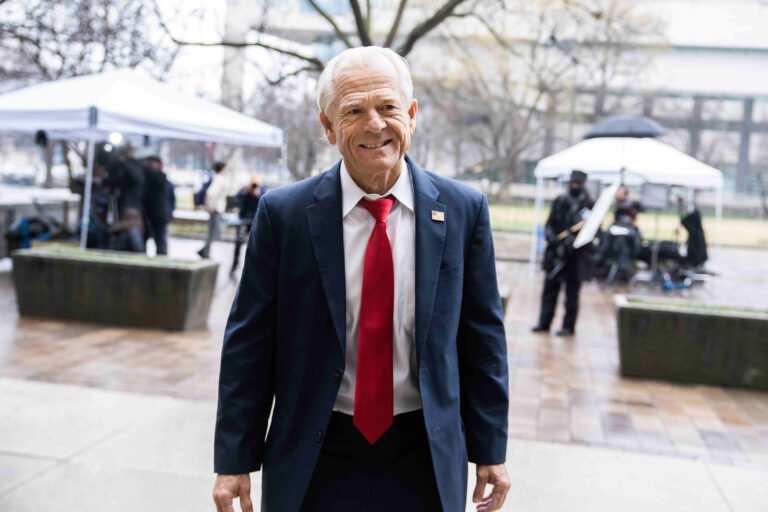
Peter Navarro, a former White House advisor under President Donald Trump’s administration, is set to become the first former White House official imprisoned for contempt of Congress after being ordered to report to prison by 2 p.m. on Tuesday. Navarro’s scheduled imprisonment comes after the Supreme Court denied the former Trump advisor’s request to remain free while appealing his case.
In January, the 74-year-old former White House advisor was convicted by a jury on two counts of contempt of Congress over his refusal to provide testimony and deliver documents to the Jan. 6 Committee regarding an alleged plan to overturn the 2020 presidential election. As a result, the former Trump advisor was sentenced to four months in prison.
Last week, the U.S. Court of Appeals for the D.C. Circuit refused to grant the former Trump advisor’s request to remain free while appealing his case. The U.S. Court of Appeals claimed Navarro “has not shown that his appeal presents substantial questions of law or fact likely” to reverse his conviction or prison sentence.
Supreme Court Chief Justice John Roberts also denied Navarro’s plea request in a brief ruling on Monday.
“The application for release pending appeal under 18 U. S. C. §3143(b) is denied,” Roberts wrote. “This application concerns only the question whether the applicant, Peter Navarro, has met his burden to establish his entitlement to relief under the Bail Reform Act.”
READ MORE: Fmr. Trump advisor sentenced to prison
Roberts explained that the U.S. Court of Appeals had previously denied Navarro’s request because the former Trump advisor “‘forfeited’ any argument in this release proceeding challenging the District Court’s conclusion.”
Roberts added, “I see no basis to disagree with the determination that Navarro forfeited those arguments in the release proceeding, which is distinct from his pending appeal on the merits.”
After being charged with contempt of Congress, Navarro’s legal team argued that the former White House advisor was could not comply with the Jan. 6 Committee’s subpoena in light of executive privilege. Navarro told U.S. District Judge Amit Mehta, “When I received that congressional subpoena…I had an honest belief that the privilege had been invoked.”
However, according to The Washington Post, Navarro was sentenced in January because he lacked the necessary documentation to prove that Trump had intended to use executive privilege to keep Navarro from testifying. Additionally, the former president has not publicly confirmed Navarro’s claims.
Following the Supreme Court’s decision to reject Navarro’s request to remain free while he appeals his case, the former White House advisor is expected to report to a federal prison in Miami by 2 p.m. on Tuesday.
0 comments :
Post a Comment